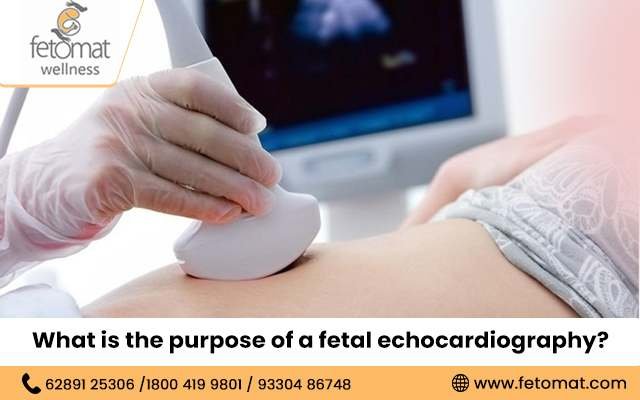Amidst the joy of pregnancy, concerns about your little one’s health are natural. That’s where prenatal assessments like fetal echocardiography come in, offering a peek into your baby’s developing heart. The best fetal medicine specialist in Kolkata discusses the importance of this test in detail below.
What exactly is a foetal echocardiography?
This painless procedure uses sound waves to create detailed images of the fetus’s heart structure, function and blood flow.
Why is it so important?
The primary purpose of this test is to detect Congenital Heart Defects (CHDs) and structural abnormalities. With early detection, doctors can:
- Plan for specialised care: Diagnosing CHDs beforehand allows doctors to prepare for your baby’s delivery and coordinate with neonatal specialists. This ensures immediate medical attention and potentially life-saving interventions.
- Offer prenatal treatment: In some cases, specific CHDs detected at the fetal echocardiography test clinic in Kolkata can be treated even before birth, improving the chances of a successful pregnancy.
Who needs a fetal echocardiography?
While not standard for all pregnancies, some factors might increase your baby’s risk of CHDs, making a fetal echocardiography advisable. These include:
- Family history of CHDs: If you or your partner have a history of heart defects, your baby might be at higher risk.
- Certain maternal conditions: Diabetes, lupus and rubella during pregnancy can raise the risk of CHDs.
- Abnormal findings on routine ultrasounds: If your regular ultrasound shows abnormalities in your baby’s cardiac structure or rhythms, a fetal echocardiography is recommended for a closer look.
What happens during the test?
Fetal echocardiography is a non-invasive diagnostic procedure designed to ensure the well-being of both mother and baby. Throughout the examination, skilled professionals will carefully guide you through each step, ensuring your comfort. A transducer will be gently maneuvered over the abdomen, providing detailed images of the fetal heart. It typically lasts between 15 -30 minutes and offers valuable insights into the cardiac health of the developing baby.
What happens after the test?
The doctor will analyse the images and discuss the results with you. If everything appears normal, you can breathe a sigh of relief and continue your pregnancy journey with renewed confidence. If any concerns arise, the doctor will explain the findings and recommend further steps, which might involve additional tests or consultations with specialists.
A fetal echocardiography is not only a diagnostic test for CHDs, but also it plays a crucial role in counselling and management. If you have any questions, don’t hesitate to discuss them with the best fetal medicine specialist in Kolkata.

